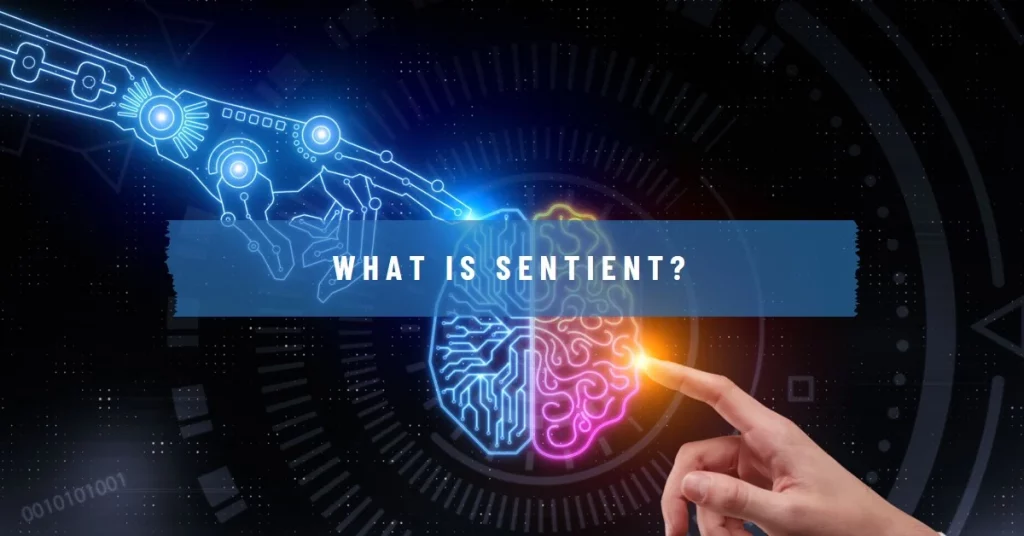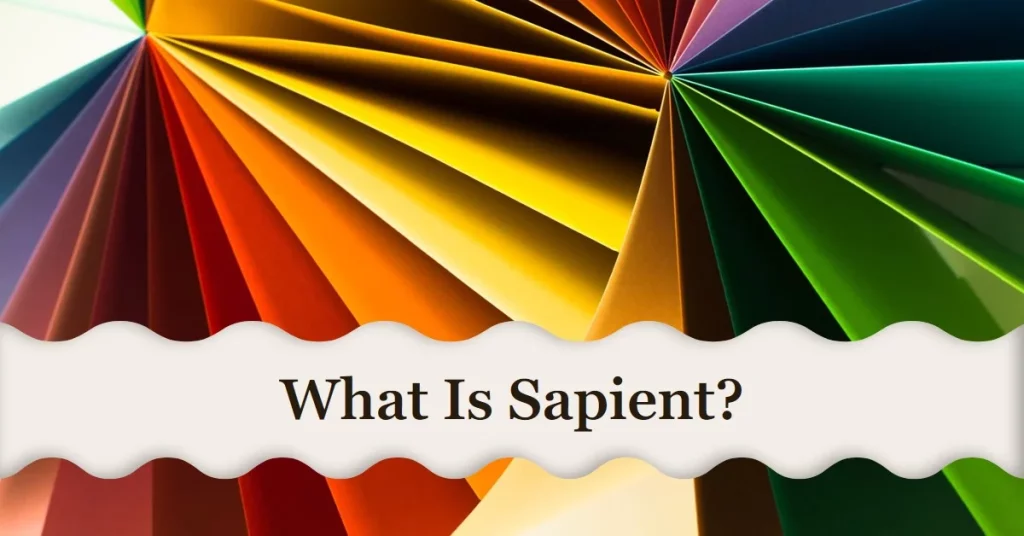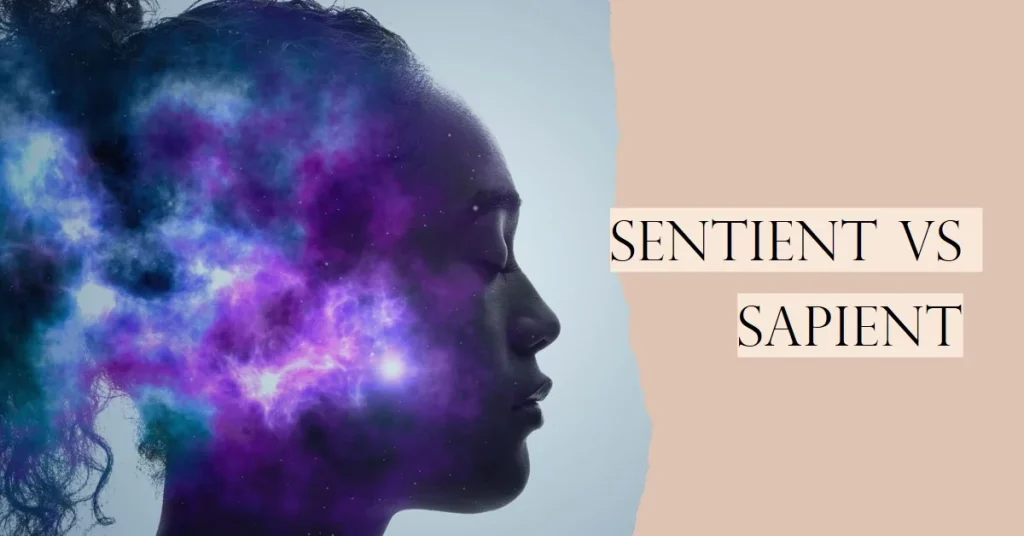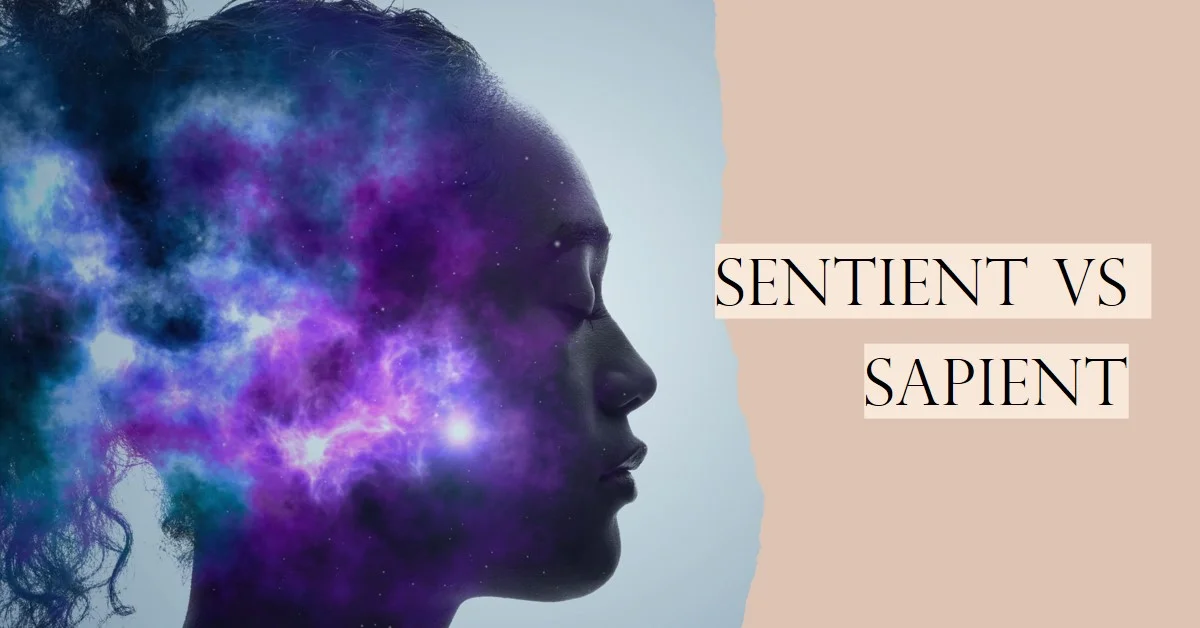What is the Difference Between Sentient and Sapient
Understand What is the Difference Between Sentient and Sapient? Two terms often used when discussing cognitive abilities are sentient and sapient. Understanding the differences between these terms can shed light on various conversations in fields such as science, philosophy, and fiction.
Sentient

Sentient refers to the ability of a living being to perceive, feel, and experience sensations. Creatures capable of sensing their surroundings, processing information, and demonstrating emotions or reactions are considered sentient. For example, animals like dogs, birds, and even insects are sentient because they can feel pain, pleasure, hunger, and fear.
Examples of Sentient Beings
Sentient beings include humans, animals, and some plants. Some examples of sentient animals include dogs, cats, horses, elephants, and dolphins. Some examples of sentient plants include trees, ferns, and flowers.
Sapient

Sapient, on the other hand, denotes the ability to possess knowledge, wisdom, and higher thinking capacities. A sapient being can reason, solve complex problems, and make judgments based on critical thinking and personal experiences. In our known existence, humans are the prime examples of sapient beings, as they can engage in abstract thinking, question their place in the universe, and create elaborate social constructs such as laws, governments, and various arts.
Examples of Sapient Beings
Sapient beings include humans and some animals. Humans are the only known sapient species on Earth. Some animals that may be sapient include chimpanzees, gorillas, and orangutans.
What are the Similarities Between Sentient and Sapient?
- Consciousness: Sentience and sapience both require consciousness, which is the ability to be aware of oneself and one’s surroundings.
- Subjective experiences: Sentient and sapient beings can both have subjective experiences, which are experiences that are unique to each individual.
- Emotions: Sentient and sapient beings can both experience emotions, which are feelings that are often accompanied by physical and psychological changes.
- Self-awareness: Sentient and sapient beings can both be self-aware, which means that they are aware of themselves as separate entities from the world around them.
- Imagination: Sentient and sapient beings can both imagine, which means that they can create mental images of things that are not currently present.
Check Our other post about Difference Between law of assumption vs law of attraction
What is the Difference Between Sentient and Sapient

The distinction between sentience and sapience is important in several fields, such as:
- Science: In biology, the distinction is crucial to understand and differentiate the cognitive abilities and behavior of various organisms. Sentience has implications in the study of animal behavior and intelligence, while sapience plays a significant role in studying human cognition and evolution.
- Philosophy: Philosophers often utilize these concepts when exploring human consciousness, the ethics of treating animals and artificial intelligence, or contemplating the possibility of other sapient life in the universe. Determining whether a being is sentient or sapient helps frame the discussion on morals, rights, and responsibilities.
- Fiction: In literature, movies, and other fictional works, authors often experiment with the idea of sentient and sapient creatures. For instance, AI-driven characters like HAL 9000 in 2001: A Space Odyssey pose existential questions about the nature of sentience and sapience and their potential crossover in the future.
Differences Table
Here’s a simplified and easy-to-understand table highlighting the differences between “sentient” and “sapient”:
| Sentient | Sapient | |
|---|---|---|
| Definition | Able to perceive and respond to surroundings. | Able to think, reason, and possess higher intelligence. |
| Awareness | Aware of existence and can experience sensations. | Self-aware and can think abstractly. |
| Examples | Animals like mammals, birds, reptiles, and some invertebrates. | Humans (some argue certain animals too). |
| Cognitive Abilities | Basic functions like perception, memory, and learning. | Advanced abilities like problem-solving and language use. |
| Consciousness | Subjective experience and can respond to stimuli. | Deeper understanding of thoughts and experiences. |
| Morality | Basic ethical behavior or protective instincts. | Capacity for moral judgment and deliberate ethical choices. |
| Evolutionary Significance | Common in many species and aids survival. | Unique human trait shaping civilization. |
Refence Links



